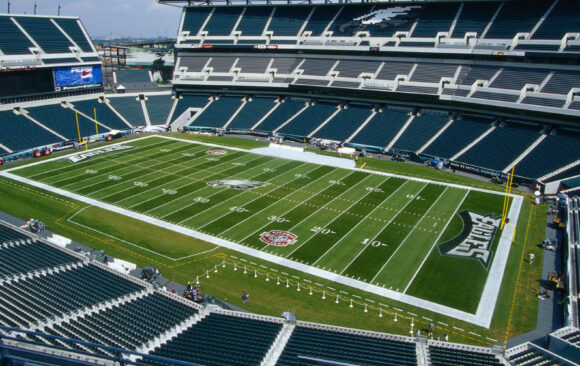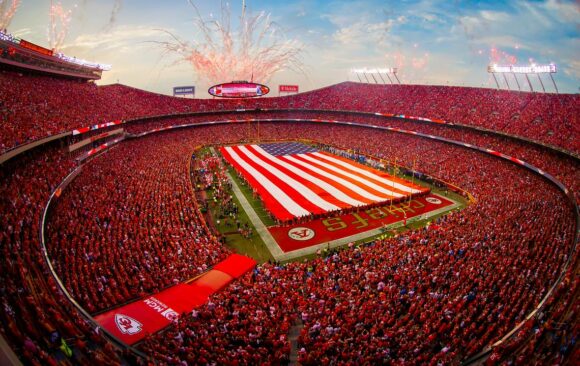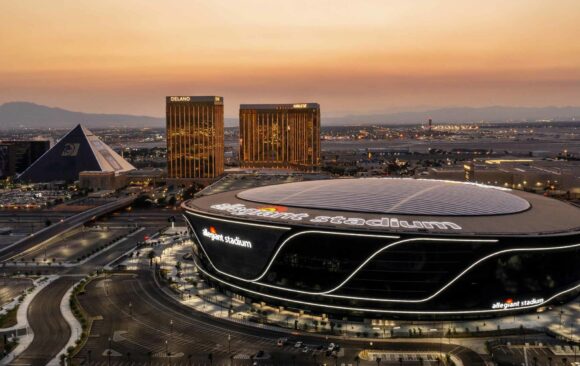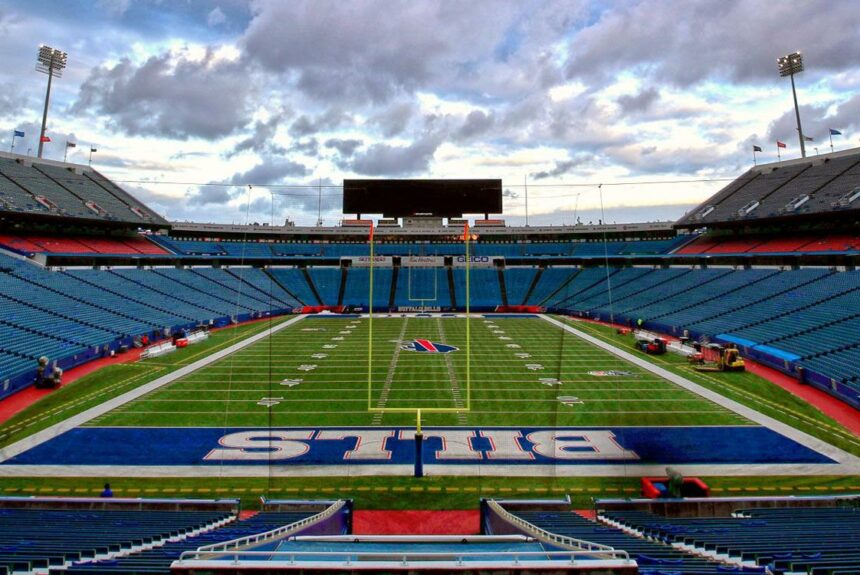With the preseason well underway, Americans across the country are gearing up for another NFL season. A new season provides hope for players and fans alike, but several teams are already winning awards. The Green Sports Alliance (GSA) recently recognized several NFL powerhouses for taking conscious steps to reduce their environmental footprint. And while sustainability is not usually associated with America’s favorite sport, it turns out that NFL teams across the country are taking.
The GSA is a trade organization focused on the environment and sustainability. The alliance launched more than a decade ago with six professional teams and five venues and now boasts nearly 600 members.
>>>READ: How One Scottish Distillery is Funding Environmental Research
The awards were given through Play to Zero, an initiative GSA launched to help accelerate climate action within sports by encouraging performance-driven sustainability. The awards are based on trackable reductions in water, waste, and energy. In the NFL, this year’s Play to Zero award recipients were the stadiums affiliated with the Philadelphia Eagles, the Kansas City Chiefs, and the Las Vegas Raiders.
Philadelphia Eagles and Lincoln Financial Field: Energy Champion Award

Lincoln Financial Field boasts some truly impressive sustainability initiatives. Stadium management installed green seating with a post-life recycling plan, developed a scrap metal program for the cans the stadium cleaning staff collect, and built a giant model of the Lombardi Trophy made solely out of recycled plastic.
But Play to Zero didn’t recognize the Eagles and The Linc for any of these efforts, but instead focused on the stadium’s impressive use of solar power. The stadium is home to nearly 11,000 solar panels. The panels, which are primarily located in the stadium parking and on top of the stadium’s roof, provide roughly 40 percent of all the energy required to run The Linc.
Kansas City Chiefs and Arrowhead Stadium: Waste Player Award

Arrowhead Stadium might be one of the loudest stadiums in the NFL, but that’s not all that makes the home of the Kansas City Chiefs unique. The Chiefs’ “Extra Yard for the Environment” initiative has made waste reduction a key priority. Reducing what gets sent to local landfills starts with the fans making their way into stadium parking lots to tailgate. Stadium employees distribute and collect bags to collect recyclables from tailgating fans.
Arrowhead and the Chiefs have also implemented processes that divert more than half of all stadium waste away from landfills to be recycled or composted. “In the last couple years, we’ve averaged between 50 and 60 percent waste diversion,” said Brandon Hamilton, the Chiefs’ Vice President of Stadium Operations. “We average over 800 tons of total waste a year, so over 400 tons of that is going to either recycling or compost.”
Las Vegas Raiders and Allegiant Stadium: Waste Leader Award

Allegiant Stadium is home to the NFL’s Las Vegas Raiders, the University of Nevada’s Las Vegas Rebels, and events like the Las Vegas Bowl. Collectively, that amount of football draws millions of fans, creating an incredible amount of waste. But Allegiant Stadium has an incredibly effective waste diversion plan.
>>>READ: Consumer Preferences for Climate-Friendly Products are Booming
One thing that sets Allegiant’s waste diversion plan apart is how they handle food waste. The stadium’s website boasts of its success in diverting food from landfills: “On average, 11,000 pounds of kitchen prep cuttings and end of event food scraps are collected per large stadium event. This waste is provided to a local Las Vegas livestock farm and is used as feed for farm animals.”
The stadium also has a unique program to collect grass clippings. Thanks to a biomass machine they installed onsite, no grass clippings go into landfills. To date, the stadium has diverted or composted 160,800 pounds of grass clippings.
With football season almost here, eco-friendly fans can take comfort in the sustainability work that NFL teams are doing. Kickoff might be around the corner, but cheering for more sustainable football is something that all fans should root for.
Kelvey Vander Hart is a native Iowan, a member of the American Conservation Coalition, and a communications specialist at Reason Foundation.
The views and opinions expressed are those of the author’s and do not necessarily reflect the official policy or position of C3.
